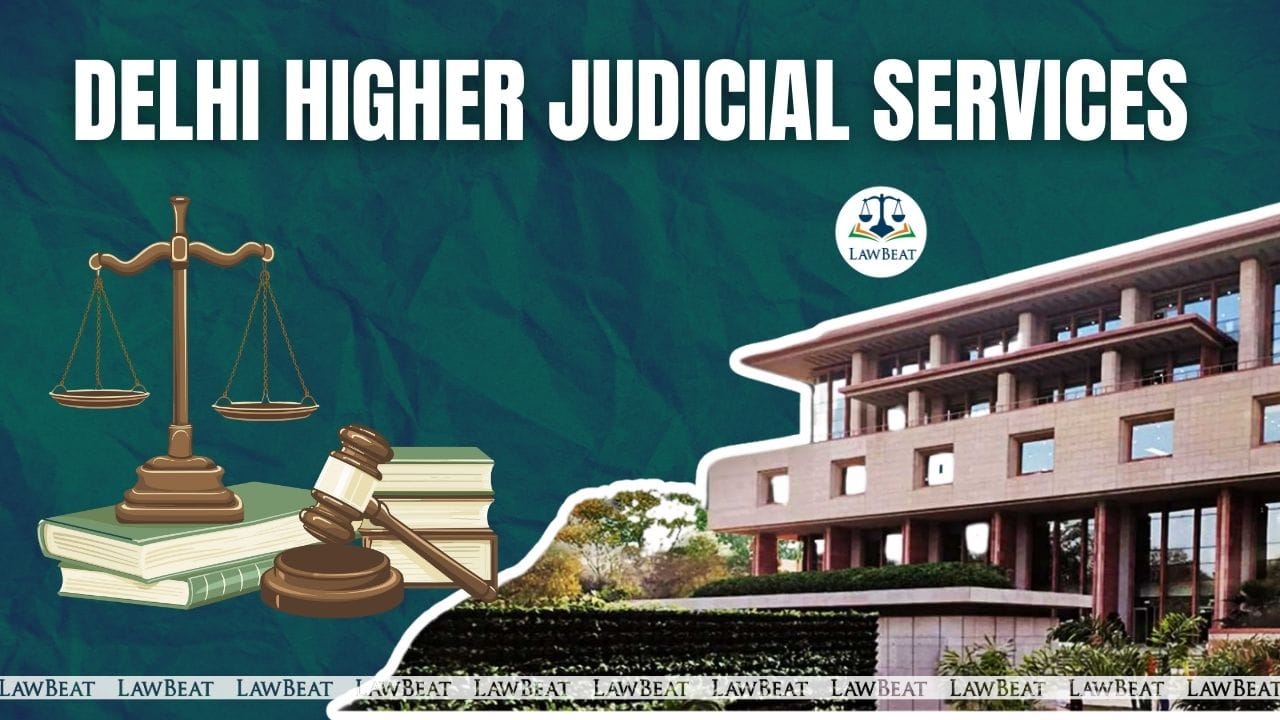'Would Not Interfere With Cut Off Date Fixed By Administrative Authorities Unless It Is Totally Arbitrary': Delhi HC

The bench of Justice C. Hari Shankar and Justice Amit Mahajan held, “The Court would not interfere with the cut off date fixed by the administrative authorities unless it is totally capricious, whimsical or arbitrary… This unavoidable hardship cannot render the fixation of the cut off date itself arbitrary”.
The Delhi High Court, recently, dismissed a petition filed by an Aspirant of the Delhi Higher Judicial Service seeking a modification that the candidate had to have attained the age of 35. The court noted that judicial interference in decisions by administrative authorities was limited to cases where the cut-off date was capricious, whimsical, or arbitrary.
The court further acknowledged that fixing a cut-off date might inevitably exclude candidates who did not meet the age or eligibility criteria by that date, but such hardship did not render the decision arbitrary.
Advocate Bhabna Das, representing the aspirant, argued that the stipulation was contradictory. According to her, the phrase "1st day of January of the year in which the applications for appointment are invited" should refer to 1 January 2025, not 1 January 2024, as the applications for DHJSE 2024 remained open until 10 January 2025. Thus, she contended that 2025 should be treated as the relevant year, making 1 January 2025 the effective date.
Second, Advocate Das contended that fixing 1 January 2024 as the cut-off date for candidates attaining the age of 35 rendered many candidates, including her client, ineligible. This included individuals who turned 35 between 1 January 2024 and 10 January 2025, despite being eligible as of the application start date, 27 December 2024.
Third, Advocate Das argued that setting 1 January 2024 as the cut-off date was arbitrary and lacked reasonable justification, particularly since the notification was issued in December 2024.
Advocate Amit George, representing the High Court, argued that setting a cut-off date was fundamentally an executive function, requiring judicial deference to executive discretion. Advocate George further contended that condition (3) in the public notice dated 27 December 2024, concerning qualifications for candidates aspiring to join the Delhi Higher Judicial Service Examination (DHJSE) 2024 as direct recruits, was not solely an administrative decision. Instead, it adhered to the Delhi Higher Judicial Service Rules, 1970.
Specifically, Advocate George referred to Rule 9, which outlined the eligibility criteria for direct recruits. These included being an Indian citizen, having at least seven years of continuous practice as an advocate by the application deadline, and being between 35 and 45 years old as of 1 January of the recruitment year. Advocate George emphasized that these stipulations were grounded in established rules rather than arbitrary discretion.
The court asserted that the act of "invitation" under Rule 9(3) referred to a single, definitive event—the issuance of a notification or notice calling for applications. The court clarified that while applications could be submitted over an extended period, the invitation occurred only once when the notification was issued.
Citing the cases of Advocate Rajender Kumar Dudeja v High Court of Delhi [2014 SCC OnLine Del 463] and Ami Lal Bhat v State of Rajasthan [(1997) 6 SCC 614], the court reiterated four principles: (1) Fixing a cut-off date for determining eligibility was both permissible and necessary for certainty in the selection process. (2) There was no legal requirement for the cut-off date to coincide with the last date for application submission. (3) The court would not interfere with a cut-off date unless it was arbitrary or capricious. (4) Any cut-off date would inevitably exclude some candidates, which could not render it arbitrary.
Furthermore, the court held that the petitioner failed to prove that the cut-off date of January 1, 2024, was arbitrary or whimsical. Therefore, the court dismissed the petition.
For Petitioner: Advocates Bhabna Das and Arpit Kumar Mishra
For Respondent: Advocates Amit George, Rupam Jha, Adhishwar Suri, Ibansara Syiemlieh, Medhavi Bhatia, Suparna Jain, Dushyant Kaul, and Arkaneil Bhaumik
Case Title: Shweta Chowdhery v High Court of Delhi (2025:DHC:41-DB)
